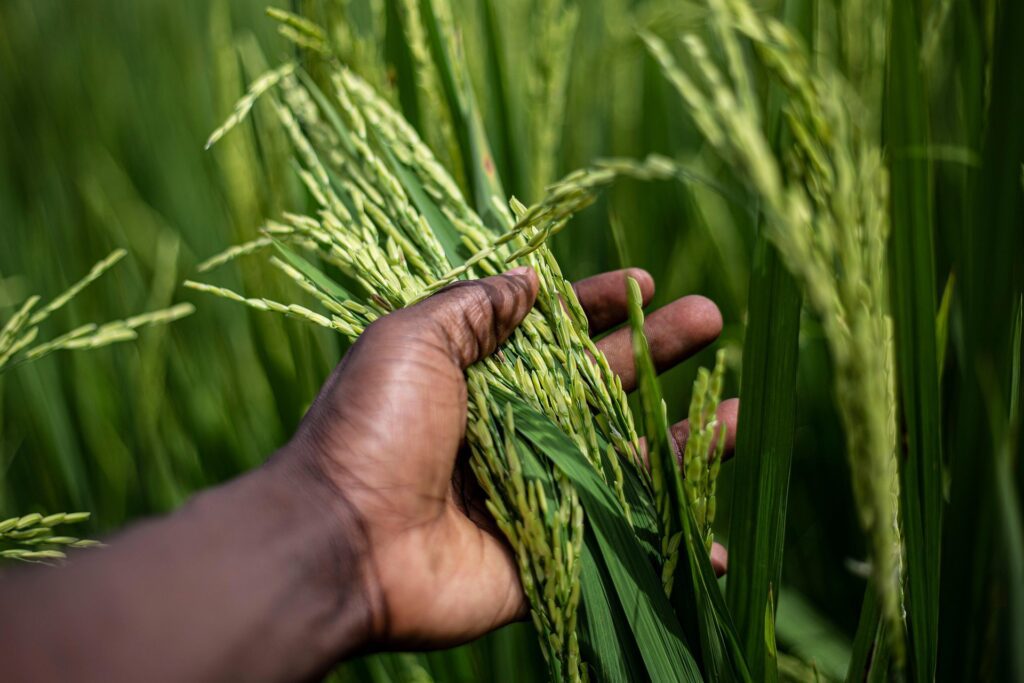Table of Contents
Introduction
Agriculture is facing unprecedented challenges, from environmental degradation to economic instability. Traditional farming methods often rely heavily on synthetic fertilizers and pesticides, which can harm the environment and deplete soil fertility. In response, natural farming has gained attention as a sustainable alternative. By leveraging natural processes and minimizing external inputs, farmers can improve soil health, reduce costs, and enhance their overall well-being.
The importance of natural farming extends beyond mere sustainability; it also plays a crucial role in personal and professional success. By adopting natural farming practices, farmers can achieve financial stability, improve their lifestyle, and build a strong professional reputation. Professionally, natural farming provides a competitive edge, enhances credibility, and offers opportunities for expansion.
In this article, we will explore the benefits of natural farming, discuss how it contributes to personal and professional success, and examine the challenges and future directions in this field.

Benefits of Natural Farming
Natural farming is a holistic approach to agriculture that emphasizes working in harmony with nature, minimizing external inputs, and promoting ecological balance. This method offers numerous benefits, both environmentally and economically, making it an attractive option for farmers seeking sustainable and profitable practices. Here’s a detailed explanation of the benefits of natural farming:
Environmental Benefits
- Improved Soil Health: Natural farming enriches the soil with organic matter, promotes microbial life, and ensures long-term fertility. This approach avoids the use of synthetic fertilizers, which can deplete soil organic carbon and alter soil structure12.
- Water Conservation: Techniques such as mulching and no-till farming reduce water evaporation and runoff, leading to efficient water use and reduced dependence on irrigation34.
- Reduced Pollution: By avoiding synthetic fertilizers and pesticides, natural farming eliminates a significant source of soil and water pollution, ensuring cleaner waterways and groundwater23.
- Biodiversity Enhancement: Diverse cropping systems and the absence of harmful chemicals create a haven for various flora and fauna, fostering a balanced ecosystem24.
- Climate Change Mitigation: Natural farming contributes to lower greenhouse gas emissions through carbon sequestration in the soil and reduced use of heavy machinery45.
Economic Benefits
- Cost Efficiency: Natural farming often requires fewer external inputs, reducing costs related to fertilizers, pesticides, and machinery. Farmers can prepare essential biological inputs using on-farm resources, further cutting costs15.
- Increased Farmers’ Income: By reducing production costs and maintaining similar yields to conventional farming, natural farming can increase net incomes. Additionally, income from intercropping and value-added products can further enhance profitability35.
- Premium Pricing: Produce cultivated through natural farming can often fetch higher prices in niche markets and among health-conscious consumers, providing an economic incentive for farmers25.
- Employment Generation: Natural farming generates employment through natural farming input enterprises, value addition, and local marketing, contributing to rural development13.
- Reduced Dependence on Credit: By minimizing external inputs, natural farming reduces farmers’ dependence on credit, freeing them from exploitative markets5.
Health Benefits
- Healthier Produce: Food grown through natural farming is free from synthetic chemical residues, offering better health benefits and higher nutritional density13.
- Reduced Health Risks: The absence of chemical pesticides and fertilizers eliminates health risks associated with their use, ensuring safer consumption13.
Social Benefits
- Community Empowerment: Natural farming often involves community-based efforts, leading to strengthened local ties, shared resources, and collective learning24.
- Cultural Preservation: This approach integrates indigenous knowledge and practices, ensuring the preservation and continuation of invaluable traditional wisdom
Cost Efficiency
Natural farming is also cost-efficient, as it eliminates the need for expensive synthetic fertilizers and pesticides. By using on-farm resources and natural processes, farmers can reduce their production costs significantly. This cost savings can be reinvested in the farm or used to improve the farmer’s lifestyle, enhancing financial stability and peace of mind.
Improved Crop Health
Natural farming promotes healthier crops through the use of mulching and indigenous microorganisms. These practices enhance soil health, improve nutrient availability, and increase crop resilience to pests and diseases. As a result, farmers can enjoy higher yields and better quality produce, which are essential for maintaining a strong market presence.
Healthier Produce
The produce from natural farming is not only healthier for the environment but also for consumers. By avoiding chemical residues, naturally grown food offers nutritional benefits and peace of mind for those who prioritize health and wellness. This focus on quality can lead to premium pricing and loyal customer bases, further enhancing a farmer’s financial stability.


Personal Success with Natural Farming
Increased Income
Natural farming can increase farmers’ incomes through several mechanisms. By reducing the cost of production, farmers can save on expensive chemical inputs and invest these savings in other aspects of their operations or personal development16. Additionally, natural farming often results in higher yields and healthier produce, which can command premium prices in the market23. This combination of cost savings and higher revenue streams enhances financial stability and provides farmers with the means to improve their living standards.
Reduced Financial Risks
Natural farming reduces financial risks by minimizing dependence on external inputs and credit. By using on-farm resources and natural processes, farmers are less vulnerable to market fluctuations and input price increases7. This stability allows farmers to plan their finances more effectively, reducing stress and uncertainty. With lower costs and more predictable income, farmers can better manage their financial obligations and invest in their future.
Improved Lifestyle
The reduced use of chemicals in natural farming minimizes health risks associated with pesticide exposure. This not only improves farmers’ health but also enhances their overall quality of life4. With fewer chemicals to handle, farmers can enjoy better working conditions and more leisure time, allowing them to pursue hobbies or spend quality time with family.
Predictability and Consistency
Natural farming provides a predictable and consistent yield, unaffected by external factors like weather conditions. This predictability allows farmers to plan their finances and operations more effectively, reducing stress and uncertainty. With a steady income stream, farmers can enjoy financial security and peace of mind.
Community Empowerment
Natural farming often fosters community involvement and local economic development. By promoting sustainable practices and supporting local markets, farmers can contribute to the well-being of their communities2. This community engagement can lead to stronger social networks and a sense of fulfillment, enhancing personal satisfaction and happiness.
Personal Fulfillment
Engaging in natural farming can be personally fulfilling, as it allows farmers to be self-sufficient and contribute to sustainable agriculture. The ability to grow food independently and efficiently can provide a sense of accomplishment and pride, contributing to personal satisfaction and happiness.
Health Benefits
Natural farming produces healthier and safer food products, free from harmful chemicals and pesticides38. By consuming these products, farmers and their families can enjoy better health and nutrition, further enhancing their overall well-being.
In summary, natural farming contributes to personal success by offering financial stability, improving lifestyle quality, reducing financial risks, and providing a sense of fulfillment. By embracing natural farming, farmers can achieve a better work-life balance and contribute to sustainable food production.
The reduced use of chemicals in natural farming minimizes health risks associated with pesticide exposure. This not only improves farmers’ health but also enhances their overall quality of life. With fewer chemicals to handle, farmers can enjoy better working conditions and more leisure time, allowing them to pursue hobbies or spend quality time with family.
Community Empowerment
Natural farming often fosters community involvement and local economic development. By promoting sustainable practices and supporting local markets, farmers can contribute to the well-being of their communities. This community engagement can lead to stronger social networks and a sense of fulfillment, enhancing personal satisfaction and happiness.
Professional Success with Natural Farming
Natural farming is also crucial for professional success in agriculture. Here are some ways in which it contributes to a farmer’s professional standing:


Competitive Advantage
Natural farming provides a competitive edge by promoting sustainable practices and premium pricing for naturally grown produce. By adopting eco-friendly methods, farmers can differentiate themselves in the market and attract environmentally conscious consumers. This competitive advantage is essential for maintaining a strong market presence and securing contracts.
Reputation and Credibility
Reputation and credibility are crucial components of professional success in agriculture, particularly for those practicing natural farming. Here’s a detailed explanation of how natural farming enhances a farmer’s reputation and credibility:
Reputation and Credibility in Natural Farming
Enhanced Professional Reputation
- Adoption of Sustainable Practices: By embracing natural farming, farmers demonstrate their commitment to sustainable agriculture. This eco-friendly approach enhances their professional reputation by showcasing their dedication to environmental stewardship and social responsibility14.
- Consistent Quality Produce: Natural farming ensures that crops are grown without synthetic chemicals, resulting in healthier and more nutritious produce. Consistently delivering high-quality, naturally grown food builds trust with consumers and other stakeholders, further enhancing a farmer’s reputation24.
- Innovative Practices: Farmers who adopt natural farming are often seen as innovative and forward-thinking. This perception enhances their credibility among peers and potential partners, as they are viewed as leaders in sustainable agricultural practices67.
Increased Credibility
- Expertise in Sustainable Agriculture: By mastering natural farming techniques, farmers establish themselves as experts in sustainable agriculture. This expertise increases their credibility within the agricultural community, making them sought-after advisors and partners36.
- Reliability and Predictability: Natural farming systems often rely on local resources and biological processes, which can provide more predictable outcomes compared to conventional methods. This reliability enhances a farmer’s credibility by demonstrating their ability to consistently deliver quality produce57.
- Community Engagement: Natural farming often involves community engagement and local market participation. By contributing to the local economy and fostering community involvement, farmers build strong relationships and enhance their credibility within their communities14.
Benefits of Enhanced Reputation and Credibility
- Access to New Markets: A strong reputation and credibility can open doors to new markets and business opportunities. Farmers with a reputation for sustainable practices may attract premium buyers willing to pay more for naturally grown produce24.
- Financial Opportunities: Enhanced credibility can lead to better financing options and partnerships. Investors and organizations are more likely to support farmers with a proven track record of sustainable and successful farming practices56.
- Influence and Leadership: Farmers with a strong reputation in natural farming can become leaders in their communities and industry. They may influence policy, educate others, and contribute to the broader adoption of sustainable agricultural practices
Opportunities for Expansion
With increased productivity and efficiency, farmers have the opportunity to expand their operations. By leveraging practices, farmers can manage larger areas more effectively, diversify their crops, and explore new markets. This expansion not only increases their income potential but also allows them to contribute more significantly to the local economy.
Challenges
Despite its numerous benefits, natural farming faces several challenges that hinder its widespread adoption. Here are some of the most significant challenges:
Yield Uncertainty
One of the primary concerns with natural farming is the potential for lower yields compared to conventional farming methods. This uncertainty can impact food security, especially in countries with large populations like India. For instance, studies have shown a decline in yields for certain crops when transitioning to natural farming, such as a 59% decline in wheat yields and a 32% decline in basmati rice yields compared to integrated crop management35.


Input Supply Issues
Natural farming relies heavily on bio-inputs like cow dung and urine for fertilizers. However, the availability of these inputs can be inconsistent, posing a challenge for farmers. Additionally, the production of bio-inputs is often labor-intensive, requiring manual intervention to prepare and apply formulations like Jeevamrit and Beejamrit17.
Knowledge and Skill Gap
There is a lack of awareness and knowledge among farmers about natural farming practices. Limited access to training and capacity-building programs hampers their ability to effectively adopt these methods. This knowledge gap can lead to inefficient use of resources and lower yields28.
Market Challenges
Natural produce often lacks a dedicated supply chain and certification mechanisms, making it difficult for farmers to secure fair and remunerative prices. Consumer awareness and marketing support are also limited, further complicating the marketability of naturally grown produce12.
Policy Gaps
There is a lack of clear guidelines on quality regulations and standards for natural inputs. Limited government funding for practices slows innovation and adoption. This policy gap hinders the development of robust support systems for farmers transitioning to natural methods12.
Climate Change and Pest Attacks
Natural farming practices are more prone to climate change-induced weather extremes and pest outbreaks. For example, locust attacks in regions like Rajasthan can significantly impact crop yields, increasing the risks of crop failure1.
Future Directions
Despite these challenges, natural farming offers promising opportunities for sustainable agriculture. Here are some future directions that can help overcome current obstacles:
Farmer Producer Organizations (FPOs)
FPOs can play a crucial role in enhancing the adoption of by collectivizing produce, implementing robust supply chains, and building consumer trust. By streamlining procurement and marketing processes, FPOs can help farmers secure better prices for their naturally grown produce1.
Farmer Training
Extensive training programs are essential for equipping farmers with the skills needed to prepare and apply bio-inputs effectively. This includes training on soil health management, pest control, and crop rotation. Civil society organizations can be engaged to promote farmer-to-farmer capacity building24.
Awareness Generation
Creating awareness among farmers, consumers, and policymakers is crucial for promoting natural farming. Comprehensive training and awareness campaigns can help build support for sustainable agriculture practices. The Andhra Pradesh model of widespread adoption of natural farming can serve as a successful example to emulate24.
Marketing Support
Strengthening marketing efforts by establishing dedicated retail outlets in urban centers can help increase demand for naturally grown produce. Introducing self-assessed certification systems can also authenticate natural produce, enhancing consumer trust and marketability14.
Policy Support
Government policies should focus on incentivizing outcomes like nutrition output, water conservation, and desertification reversal rather than input-based subsidies. This shift in policy focus can support the transition to natural farming and address short-term losses during the transition phase25.
Scientific Research and Validation
The Indian Council of Agricultural Research should design curricula and conduct rigorous scientific tests to validate the impact of natural farming on crop yields and sustainability. This validation is essential for large-scale adoption and addressing concerns about food security


Initial Transition Challenges
One of the significant challenges with is the initial transition from conventional practices. Farmers may face difficulties in adjusting to new methods and managing the transition period, which can be time-consuming and require significant changes in farm management.
Technological Integration
The future of will likely involve further integration with technology to enhance efficiency and scalability. Innovations like precision agriculture and data analytics can help optimize practices, making them more efficient and productive. By leveraging technology, farmers can improve crop yields, reduce waste, and enhance their overall sustainability.
Policy Support
Government policies play a crucial role in promoting and supporting practices. Policies that incentivize sustainable agriculture, such as subsidies for organic farming or tax breaks for eco-friendly practices, can encourage more farmers to adopt natural farming methods. This support is essential for scaling up natural farming and making it a mainstream practice.
Conclusion
offers a promising path to personal and professional success in agriculture. By enhancing environmental sustainability, reducing costs, and improving farmers’ incomes, natural farming provides a path to a more fulfilling and successful life. Professionally, it provides a competitive edge, enhances credibility, and offers opportunities for expansion.
As the agricultural sector continues to evolve, embracing natural farming and addressing the challenges associated with its use will be essential for future success. By leveraging technological advancements and focusing on sustainability, farmers can ensure a prosperous and environmentally conscious future for themselves and their communities.
This comprehensive blog post explores the role of natural farming in achieving personal and professional success, highlighting its benefits, challenges, and future directions. It provides insights into how natural farming can contribute to sustainable and efficient farming practices, making it an indispensable tool for modern agriculture.
Brilliant innovation! ESprunki‘s AI turned my grocery list into country lyrics. Sprunki Game’s word-to-music algorithm makes errands poetic!
Hello men
Hi. A 14 excellent site 1 that I found on the Internet.
Check out this site. There’s a great article there. https://budaorsinaplo.hu/a-perfekcionizmus-csapdaja-hogyan-fogadd-el-hogy-a-jo-is-eleg/|
There is sure to be a lot of useful and interesting information for you here.
You’ll find everything you need and more. Feel free to follow the link below.
Great insights on strategy – it’s all about patience and smart decisions. For a real thrill, check out the ph978 slots; they offer a perfect mix of excitement and chance.